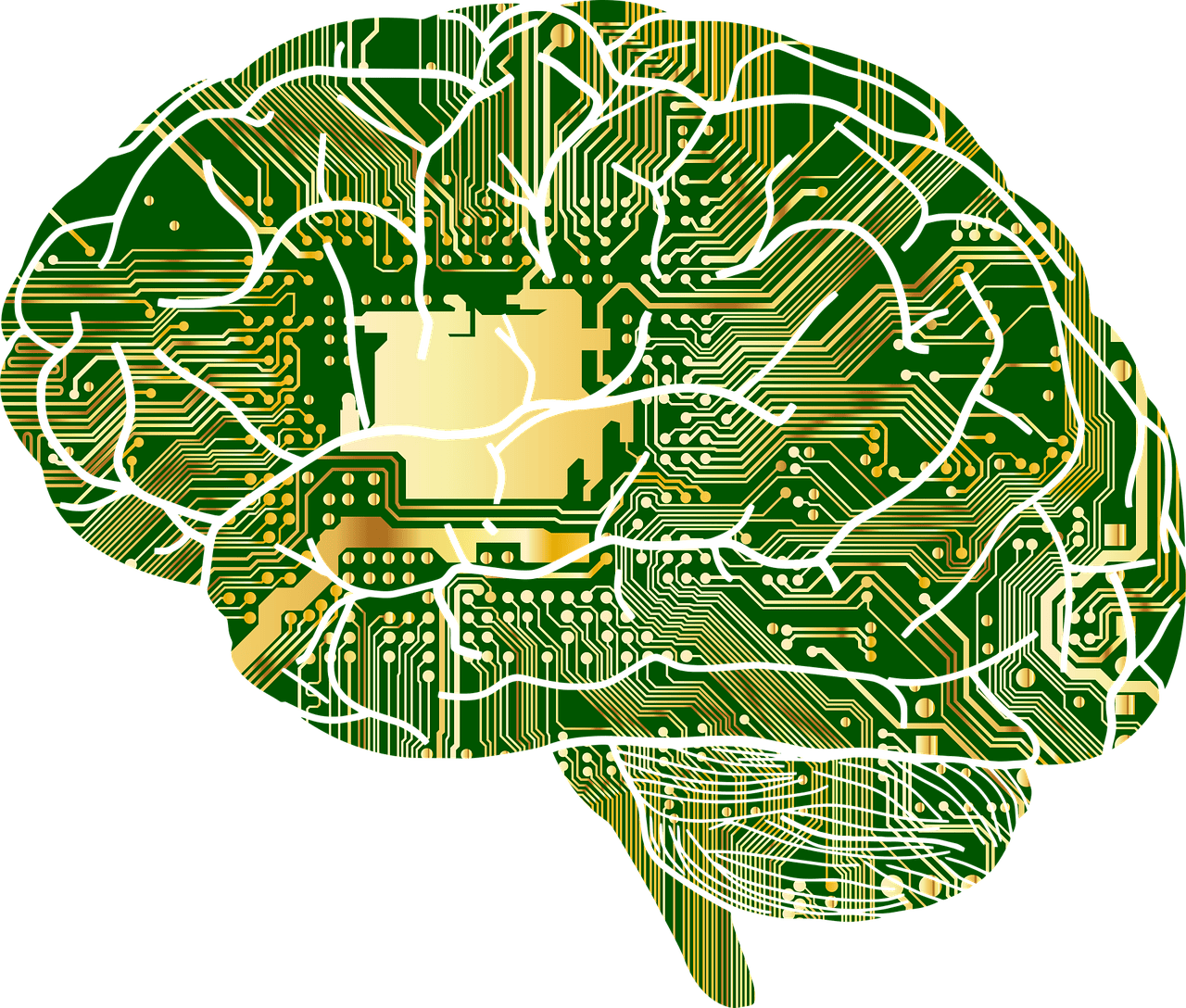The Role Of Ai In Healthcare: Revolutionizing Patient Care
AI, or artificial intelligence, has emerged as a powerful force in the healthcare industry, transforming the way patient care is provided. With its ability to process vast amounts of data and make complex decisions in real time, AI is revolutionizing every aspect of healthcare delivery.
From enhanced diagnostic accuracy to improved treatment plans, AI is reshaping the landscape of patient care in ways that were once unimaginable.
Gone are the days when healthcare professionals solely relied on their own expertise and experience to diagnose and treat patients. Thanks to AI algorithms and machine learning capabilities, diagnostic accuracy has reached new heights. By analyzing a multitude of patient data including medical records, test results, and even genetic profiles, AI systems can identify patterns and predict potential health issues with unprecedented precision. This not only helps physicians make more accurate diagnoses but also allows for early detection of diseases that may have gone unnoticed before. The result? Faster interventions and better outcomes for patients.
Furthermore, AI’s impact on treatment planning cannot be overstated. By constantly learning from vast databases of medical literature and clinical trials, AI systems can recommend personalized treatment plans tailored to each individual’s unique needs. This ensures that patients receive the most effective treatments available based on current research evidence and best practices. Moreover, with AI’s ability to continuously monitor patient progress and adapt treatment plans accordingly, healthcare providers can optimize outcomes while minimizing risks and complications.
In conclusion, the role of AI in healthcare is nothing short of revolutionary. Its ability to enhance diagnostic accuracy, improve treatment plans, increase efficiency in healthcare delivery, and advance research and development holds immense potential for improving patient care across the board. However, as with any technological advancement, there are challenges that need to be addressed such as privacy concerns and ethical considerations surrounding data usage. Nonetheless, it is clear that AI will continue to play an increasingly vital role in shaping the future of patient care by providing innovative solutions that save lives and improve overall health outcomes.
Key Takeaways
- AI revolutionizes patient care by enhancing diagnostic accuracy and treatment planning through the analysis of patient data and identification of patterns.
- AI enables doctors to make better-informed decisions about patient care by continuously learning from medical literature and clinical trials.
- AI improves efficiency in healthcare delivery by automating routine tasks and reducing waiting times for patients.
- AI accelerates medical breakthroughs and personalized medicine by analyzing complex data, uncovering valuable insights, and streamlining the drug discovery process.
Enhanced Diagnostic Accuracy
AI is transforming healthcare by improving diagnostic accuracy, allowing doctors to swiftly and accurately detect diseases with the precision of a skilled detective.
Through the use of predictive analytics and machine learning algorithms, AI can analyze vast amounts of patient data and identify patterns that may be indicative of certain diseases. This enables doctors to make more informed decisions and provide personalized treatment plans for their patients.
One way AI enhances diagnostic accuracy is through predictive analytics. By analyzing large sets of patient data, AI can identify trends and patterns that may not be immediately apparent to human physicians. For example, AI algorithms can analyze genetic information, medical history, lifestyle factors, and other relevant data points to predict a patient’s risk of developing certain diseases. This allows doctors to intervene earlier and implement preventive measures to reduce the likelihood of disease progression.
Machine learning algorithms also play a crucial role in improving diagnostic accuracy. These algorithms can continuously learn from new data inputs, allowing them to refine their predictions over time. As more patient data becomes available and is fed into the algorithm, it becomes increasingly accurate at identifying potential diseases or conditions. This helps doctors avoid misdiagnosis or delays in diagnosis by providing them with reliable insights based on objective analysis.
AI’s role in healthcare goes beyond mere automation; it has revolutionized diagnostic accuracy by harnessing the power of predictive analytics and machine learning algorithms. By analyzing large amounts of patient data and identifying patterns that may indicate certain diseases or conditions, AI enables doctors to make better-informed decisions about patient care.
With its ability to continuously learn from new data inputs, AI holds great promise in enhancing diagnostic accuracy further in the future.
Improved Treatment Plans
With the help of advanced technology, medical professionals are able to enhance and refine their strategies for providing more effective treatment plans. AI plays a crucial role in this process by analyzing vast amounts of patient data and generating personalized interventions based on individual characteristics and medical history.
By taking into account factors such as genetics, lifestyle choices, and previous treatment responses, AI algorithms can identify patterns and trends that may not be immediately apparent to human clinicians. This allows for the development of tailored treatment plans that have the potential to greatly improve patient outcomes.
One of the key advantages of using AI in developing treatment plans is its ability to consider a wide range of variables simultaneously. Unlike humans who may be limited by their own cognitive biases or lack access to certain information, AI can analyze large datasets quickly and accurately. This enables clinicians to make more informed decisions regarding medication dosages, surgical procedures, or alternative therapies that may be better suited for a particular patient. By constantly learning from new data inputs and updating its algorithms accordingly, AI has the potential to continuously improve treatment plans over time.
Moreover, AI can also assist in predicting how patients will respond to specific treatments or interventions. By comparing an individual’s profile with similar cases from a database of anonymized patient records, AI algorithms can generate predictions about the likelihood of success or failure for different approaches. This predictive capability allows healthcare providers to weigh the potential risks and benefits before making any decisions. Ultimately, by leveraging AI’s analytical power and knowledge-based approach, medical professionals can develop more targeted treatment plans that maximize effectiveness while minimizing unnecessary risks.
The use of AI in improving treatment plans has revolutionized patient care by enabling personalized interventions based on individual characteristics and medical history. Through its ability to analyze vast amounts of data quickly and accurately, AI provides insights that may not be readily apparent to human clinicians alone. Furthermore, its predictive capabilities help healthcare providers assess potential outcomes before implementing any treatments or interventions. As technology continues to advance, the role of AI in healthcare is expected to further enhance patient outcomes and revolutionize the way medical professionals approach treatment planning.
Increased Efficiency in Healthcare Delivery
By leveraging advanced technology, you can enhance the efficiency of healthcare delivery, transforming the way medical professionals approach treatment planning. With the integration of artificial intelligence (AI) in healthcare systems, there’s been a significant improvement in patient outcomes and streamlined processes.
AI algorithms are capable of analyzing vast amounts of medical data and providing valuable insights to healthcare providers, allowing them to make more informed decisions and develop personalized treatment plans. One key benefit of AI in healthcare is its ability to analyze complex patient data quickly and accurately. This enables medical professionals to identify patterns and trends that may not be immediately apparent to human observers.
By utilizing AI-powered tools, physicians can access predictive analytics that aid in early diagnosis and targeted interventions, leading to improved patient outcomes. This not only saves valuable time but also enhances the precision and effectiveness of treatment plans.
Moreover, AI technology has revolutionized the process of healthcare delivery by automating routine tasks and administrative processes. With AI-powered chatbots or virtual assistants, patients can schedule appointments, receive reminders about medications or follow-up visits, and get answers to common questions without having to wait for human assistance. This streamlines the entire healthcare experience for patients while freeing up medical staff’s time so they can focus on delivering high-quality care.
Incorporating AI into healthcare delivery has brought significant improvements in patient outcomes while streamlining various processes within the industry. The analytical capabilities provided by AI algorithms allow for better analysis of complex patient data, resulting in more accurate diagnoses and personalized treatment plans.
Additionally, automating routine tasks through AI-powered tools enhances efficiency by reducing waiting times for patients while optimizing medical staff’s productivity. As technology continues to advance, AI will undoubtedly play an increasingly vital role in revolutionizing patient care across the globe.
Advancements in Research and Development
In the field of healthcare research and development, advancements have been made in data analysis for new discoveries. By utilizing advanced analytical tools and algorithms, researchers are able to uncover valuable insights from vast amounts of medical data, leading to new breakthroughs in treatment options and disease prevention strategies.
These advancements have also played a crucial role in accelerating the pace of medical breakthroughs, allowing for faster identification of promising leads and streamlining the drug discovery process.
Data Analysis for New Discoveries
Contrary to popular belief, AI in healthcare can uncover new discoveries through data analysis. By utilizing real-time monitoring and predictive modeling, AI systems have the ability to analyze vast amounts of patient data and identify patterns that may not be apparent to human researchers. This enables healthcare professionals to make more accurate diagnoses, predict disease progression, and develop personalized treatment plans for patients.
1) Real-time monitoring: AI algorithms can continuously monitor a patient’s vital signs, medication adherence, and lifestyle habits. This constant stream of data allows for early detection of any abnormalities or changes in health status. For example, an AI system can detect subtle changes in heart rate variability that may indicate the onset of a cardiac event. By alerting healthcare providers in real time, interventions can be implemented promptly, potentially saving lives.
2) Predictive modeling: AI has the capability to analyze large datasets from various sources such as electronic health records (EHRs), genetic information, and wearable devices. By applying machine learning techniques to this data, AI algorithms can identify risk factors associated with certain diseases or conditions. This helps in predicting individuals who are at a higher risk of developing specific illnesses and enables targeted preventive measures or early interventions.
3) Uncovering hidden connections: With its ability to process vast amounts of complex data quickly and efficiently, AI can uncover previously unknown connections between different variables. For instance, by analyzing genetic information alongside lifestyle factors and environmental exposures, AI systems may discover novel genetic markers that influence disease susceptibility or response to treatment. These discoveries have the potential to revolutionize our understanding of diseases and pave the way for breakthrough treatments.
AI-driven data analysis plays a crucial role in uncovering new discoveries in healthcare. The combination of real-time monitoring and predictive modeling allows for early detection of health issues and personalized interventions. Additionally, by analyzing large datasets and identifying hidden connections between variables, AI has the potential to advance medical knowledge and improve patient care outcomes significantly.
Accelerating Medical Breakthroughs
Imagine the excitement and hope you feel when medical breakthroughs are rapidly accelerated, bringing us closer to finding cures for devastating diseases and improving lives. This is exactly what AI is doing in the field of healthcare by revolutionizing drug discovery and personalized medicine. With advanced algorithms and machine learning techniques, AI is able to analyze massive amounts of data from various sources such as clinical trials, electronic health records, and genetic databases. By identifying patterns and correlations that humans may not be able to detect, AI can uncover new insights and potential targets for drug development.
To illustrate the power of AI in accelerating medical breakthroughs, let’s imagine a scenario where researchers are trying to develop a new treatment for cancer. In one column of the table, we have a list of known cancer genes that have been identified through years of research. In the other column, we have a list of potential drugs that could target these specific genes. Using AI-powered algorithms, researchers can quickly analyze this vast amount of information to identify promising drug-gene interactions. This not only saves time but also increases the chances of finding effective treatments by considering a wide range of possibilities.
Furthermore, AI can also contribute to personalized medicine by tailoring treatments based on individual patient characteristics. By analyzing patients’ genetic information along with their medical history and response to previous treatments, AI algorithms can help identify which therapies are most likely to be effective for each patient. This approach minimizes trial-and-error attempts and enables doctors to provide more targeted and efficient care.
AI is playing an instrumental role in accelerating medical breakthroughs in healthcare. By leveraging its ability to analyze large volumes of data and identify patterns that humans may miss, it has the potential to revolutionize drug discovery and personalize medicine like never before. The future holds great promise as we continue harnessing the power of AI in our ongoing quest for better treatments and improved patient outcomes.
Future Implications and Challenges
Picture yourself facing the challenges and implications that lie ahead as AI continues to revolutionize healthcare.
With the rapid advancements in technology, there are both ethical considerations and privacy concerns that need to be addressed. As AI becomes more integrated into patient care, it’s crucial to ensure that ethical guidelines are followed to protect the well-being of individuals.
Additionally, maintaining patient privacy becomes increasingly important as sensitive medical information is processed by AI algorithms.
Ethical considerations play a significant role in the future implications of AI in healthcare. As machines become capable of making decisions about patient care, questions arise about who holds responsibility for these decisions. It’s essential to establish clear guidelines on how AI should operate and what level of autonomy it should have when it comes to critical medical decisions. Balancing the benefits of AI with human oversight is crucial to maintain trust in these technologies.
Moreover, privacy concerns cannot be overlooked when discussing the future implications of AI in healthcare. With large amounts of personal health data being collected and analyzed by AI systems, there is a risk of this information falling into the wrong hands or being used for purposes other than patient care. Stricter regulations and robust security measures must be implemented to safeguard patient confidentiality and prevent unauthorized access or misuse of their data.
As we navigate through the ever-evolving landscape of healthcare driven by AI technology, ethical considerations and privacy concerns must be at the forefront of our discussions. Establishing clear guidelines for ethical decision-making by AI systems ensures accountability while also preserving human involvement in critical medical choices. Simultaneously, stringent measures should be put in place to protect patients’ privacy and secure their personal health data from breaches or misuse.
By addressing these challenges head-on, we can fully harness the potential benefits offered by AI while upholding patient rights and safety.
Conclusion
In conclusion, the role of AI in healthcare is revolutionizing patient care by enhancing diagnostic accuracy, improving treatment plans, increasing efficiency in healthcare delivery, and advancing research and development.
With AI-powered algorithms analyzing vast amounts of medical data, doctors can make more accurate diagnoses and identify potential health issues before they become critical. This not only saves lives but also reduces the burden on healthcare systems.
For instance, imagine a busy hospital where doctors are overwhelmed with patients needing urgent care. The waiting room is filled with anxious individuals desperately seeking medical attention. In such a scenario, AI can act as a guiding light amidst the chaos.
By efficiently triaging patients based on their symptoms and medical history, AI algorithms can prioritize those who need immediate attention while providing reassurance to others who may require less urgent care. This metaphorical guiding light helps streamline the workflow for medical professionals, ensuring that resources are allocated appropriately and patient outcomes are maximized.
Furthermore, AI’s ability to analyze large datasets allows for improved treatment plans tailored to individual patient needs. By integrating personal health records with real-time data from wearable devices or monitoring systems, physicians can gain valuable insights into each patient’s unique health profile.
This depth of knowledge enables them to develop personalized treatment strategies that consider factors like genetics, lifestyle choices, and environmental influences. Just as an artist blends different colors together to create a beautiful painting, AI seamlessly combines various elements of an individual’s health data to form a comprehensive picture that guides decision-making towards optimal patient outcomes.
While there are still challenges to overcome in implementing AI in healthcare fully – such as ensuring data privacy and maintaining ethical standards – it is evident that its potential benefits far outweigh the obstacles faced along the way.
As technology continues to advance at an exponential rate, the future implications of AI in healthcare are promising. With increased adoption and refinement of AI-powered solutions, we can expect even greater strides towards personalized medicine and improved patient care worldwide.







